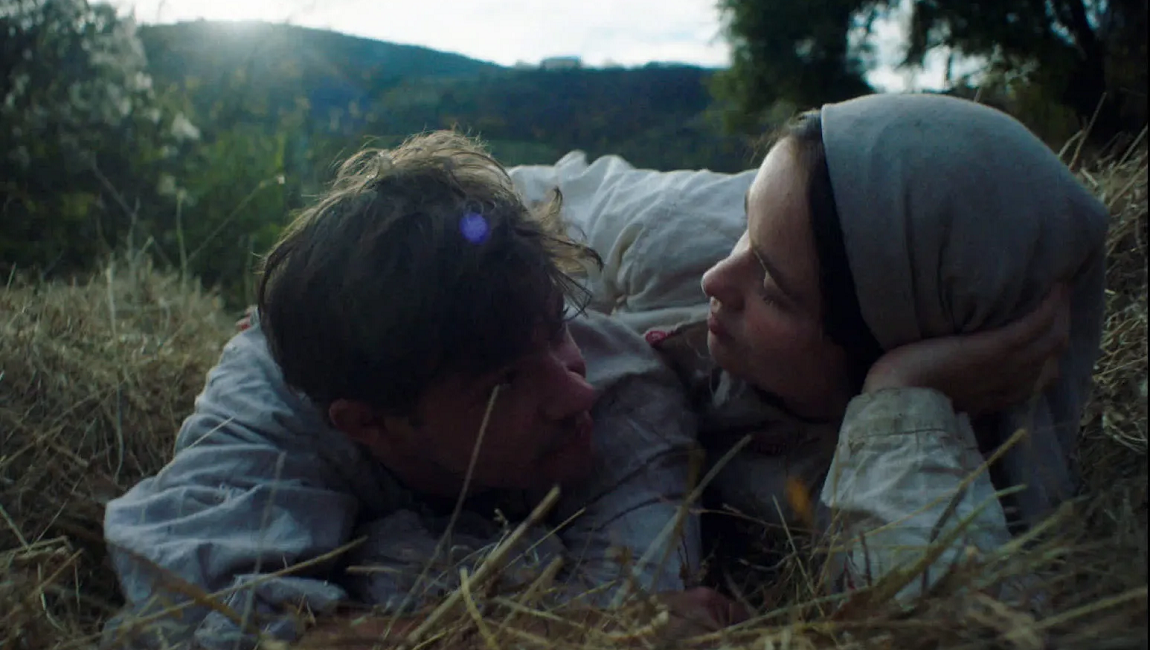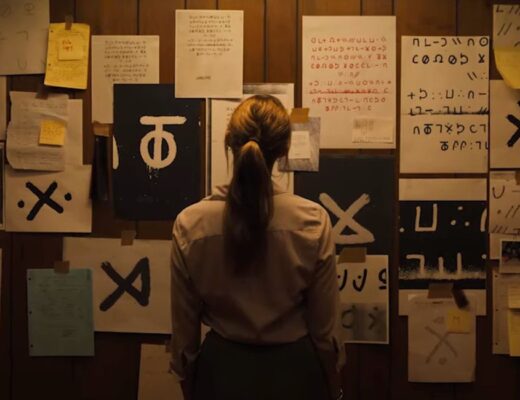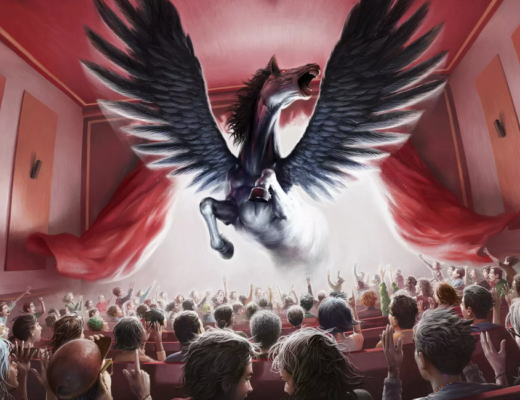You Won’t Be Alone is an emotional and aesthetic masterwork, and a stirring expression of the human condition.
Goran Stolevski’s feature-length debut, You Won’t Be Alone, bears a title freighted with meaning. Its phrasing communicates a gentle, hopeful assurance while also carrying the implication that life’s miseries mean we’d do well to absorb this reminder, mantra-like. It’s a title chockablock with both experiential and emotional suggestion, its simplicity a blank canvas conducive to limitless interpretation. Stolevski takes this freedom not as an opportunity for drilling down into specificity, however, but instead to express a particular grandiosity: the arc of the human condition. It’s ambitious, swaggering subject matter to construct a film around, lending itself easily to the kind of empty pretentiousness that typically sinks films of this ilk. Pair that with a palpable Malickian influence in both the film’s visual and aural design — poetic, ruminative voiceover backgrounding a camera that flows through sun-dappled compositions — and it’s not hard to project a highfalutin mediocrity along the lines of Ain’t Them Bodies Saints. It’s certainly enough to rightly raise one’s hackles, but Stolevski’s film thankfully reveals itself to be so much more than an exercise in aesthetic cribbing.
You Won’t Be Alone is inspired by Macedonian myth, but it shares a baseline mythology that’s familiar to a number of various Eastern European traditions, which affords the director ample room for invention. Operating at a loose nexus of fairy tale, folk horror, and Reygadas-esque patient, pastoral realism, You Won’t Be Alone is the quietly fabulist story of Nevena, a young girl taken from her mother when she is only an infant by the witch Old Maid Maria. “Raised” feral in the surrounding woods, Nevena comes of age and begins to desire escape, at which point Maria administers the “witching spit,” a visceral fiction Stolevski has created that involves clawing a deep gash into one’s chest and, well, spitting into it. Nevena is subsequently changed, able to take on the bodies of others through another of Stolevski’s remarkably grisly imaginings (which we’ll leave to viewers’ discovery), and enters into life in a small 19th-century village, cycling through 3 different hosts across the film’s runtime. A kind of riff on the coming-of-age story, Nevena first lives as a woman, then a man, then a woman again, and the reticulated plot cycles through both the small emotional evolutions of learning pleasure, grief, selfishness, and generosity and the broader social dimensions of womanhood and community. The witch as a symbol has long been one of our best windows into humanity’s murk, and Stolevski here leverages that history toward profoundly compassionate ends; the film’s narrative compartments are built upon a deeply empathic foundation, for the present characters — particularly Maria — in micro, but also implicitly for the weakness of our collective humanity.
You Won’t Be Alone manages to carve out a bit of singularity in this unique narrative and tonal shape it takes, but it’s still decidedly familiar thematic territory, no matter how expansive or existential in nature. Its successes in this arena, then, primarily work to establish a solid foundation, and it’s through the film’s technical craft that Stolevski’s film becomes something altogether more transcendental. After its story framework is set in its initial 15 or so minutes — which includes the first intimations of the (somehow gentle) body horror to follow and the wonderful makeup work; Maria is a hell-red, cragged eyesore, as if scraped clean of skin and dried out — the film then proceeds for a long while as a soft, sensorial experience: DP Matthew Chuang’s camera frames beautiful mountain ranges and swaying fields, alternately lingering on and pushing through various flora, and almost always hugging its characters’ faces in extreme close-up when not pushing back for a quick vista view. The film’s narrative fodder fits into these visual rhythms, capturing the quotidian details of the village’s existence: shucking corn for pig feed, strolls through overgrown grass, romps in the hay. All of this gentleness is periodically upset by visceral but mundane acts of barbarity, brutal interludes that question the endurance of beauty in a fundamentally violent world.
But it’s the film’s sound design that most impresses. Indeed, it’s according to these terms that You Won’t Be Alone fully distinguishes itself from such immediate reference points as The Witch and Under the Skin. Mark Bradshaw’s alternately ethereal and portentous score supplements its ambient core with twinkling piano and classical, hyperactive violin throughout, casting its aural character as darkly operatic. Any horror here is of a distinctly less sensational sort. The film’s voiceover, meanwhile, takes Malick’s familiar brand of abstracted philosophizing to even more amorphous territory, a kind of broken language poetry in thematic lockstep with Nevena’s emerging actualization. Stolevski’s screenplay is a primal reimagining of language; lines like “Me the bees buzzing in my bowels” are reflective of the narration’s general, affected cadence, while he’s also not afraid to lean into the film’s pointed emotional/existential expressionism: “It’s a burning, hurting thing. This world. And yet.” That such lines engender pronounced feeling and not eye rolls is testament to the cogency and mutualism of Stolevski’s technical design here, each essential element of the medium strengthening and expanding the others. You Are Not Alone is thusly the rare tone poem film that feels enlivened rather than enervated by its bold aesthetic choices, a work built from a broad array of influences but adept at establishing and articulating its own singular character. And so, while it’s obviously risible to imagine the infinitude of humanity could ever be communicated in any single work, or indeed across the collective whole of art, You Are Not Alone is the first film since The Tree of Life to so honestly and evocatively attempt this particular impossibility.







